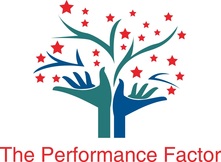Pay & Benefits, Compensation & Reward

Rewarding your people involves developing a long-term, sustainable strategy that takes into account your business objectives, affordability, market competitiveness, the complexities of legislation (such as the Equality Act and the Transfer of Undertakings (TUPE) Regulations), and the expectations of your staff and often the public.
In recent years, employers have started to adopt a more individualistic approach to how employees are rewarded.
With pay, there has been a move away from collective bargaining, across-the-board pay rises and service-related increments to performance-related arrangements.
Benefit provision has seen a widespread shift from final salary pension schemes to money purchase plans (particularly in the private sector) and some movement from fixed benefits to flexible and voluntary arrangements.
Employee benefits are non-cash provisions within the pay and benefits package, although they have a financial value or cost for employers – for example, paid holidays, pensions and company cars. Employee benefits generally form a very significant part of the overall pay and benefits package, with estimates suggesting that their value can account for up to around 40% of the costs to organisations of employing staff.
Great care needs to be taken to ensure that your compensation and reward mechanisms:
The Performance Factor can advise and support you in devising and managing effective reward solutions for your organisation. Specifically this may include help with:
In recent years, employers have started to adopt a more individualistic approach to how employees are rewarded.
With pay, there has been a move away from collective bargaining, across-the-board pay rises and service-related increments to performance-related arrangements.
Benefit provision has seen a widespread shift from final salary pension schemes to money purchase plans (particularly in the private sector) and some movement from fixed benefits to flexible and voluntary arrangements.
Employee benefits are non-cash provisions within the pay and benefits package, although they have a financial value or cost for employers – for example, paid holidays, pensions and company cars. Employee benefits generally form a very significant part of the overall pay and benefits package, with estimates suggesting that their value can account for up to around 40% of the costs to organisations of employing staff.
Great care needs to be taken to ensure that your compensation and reward mechanisms:
- reinforce your company's culture
- support and align with your corporate strategy and business objectives
- help you to remain competitive
- help you to attract, retain and motivate talented & skilled employees
- provide value for money
- are in compliance with legislative and regulatory requirements
- are sustainable in the long-term
- meet the needs, aspirations and expectations of your staff and key stakeholders
- are not administratively cumbersome or costly
The Performance Factor can advise and support you in devising and managing effective reward solutions for your organisation. Specifically this may include help with:
- Market analysis & benchmarking
- Job Evaluation & Grading schemes
- Bonus Incentive Plans (Cash and Non-Cash)
- Benefits Programme
- Non-financial Rewards (see below)
Non-Financial Rewards
Of course, pay is not the only motivator. Employees place great emphasis on intangible rewards (such as those listed below), when deciding where to work and the level of commitment to give to their work. Although these elements have always existed in the workplace to a greater or lesser degree, they have often been taken for granted and thus not actively managed. Acknowledging the importance of not only tangible but also intangible rewards within the work experience, therefore, can have wide-reaching implications for employers and employees alike. This has been termed 'Total Reward'.
Non-financial rewards may be offered for business reasons (helping to recruit, retain and/or motivate employees in order to achieve organisational objectives) and/or ‘moral’ reasons based on a desire to care for employees’ well-being (and, in so doing, potentially enhance employee engagement).
In more detail, Total Reward may include some, or all, of the following elements as well as traditional elements of pay and benefits packages:
Non-financial rewards may be offered for business reasons (helping to recruit, retain and/or motivate employees in order to achieve organisational objectives) and/or ‘moral’ reasons based on a desire to care for employees’ well-being (and, in so doing, potentially enhance employee engagement).
In more detail, Total Reward may include some, or all, of the following elements as well as traditional elements of pay and benefits packages:
- flexible benefits
- access to professional and career development
- a challenging role at work
- freedom and autonomy at work
- opportunity for personal growth
- recognition of achievements
- preferred office space or equipment
- capacity to raise matters of concern
- involvement in decisions that affect the way work is done
- flexible working hours
- job design
- work/life balance
- opportunities for working from home
- company culture
- secretarial support
|


